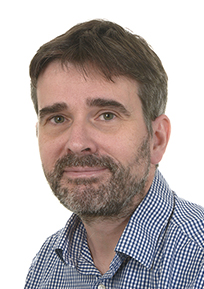HFMA Academy: diploma shows clinical appeal
When Toby Garrood signed up to study for the HFMA Advanced higher diploma in healthcare business and finance last September, little did he know that he was passing a significant landmark for the association, writes Steve Brown. Dr Garrood was, in fact, the HFMA Academy’s 500th learner to start one of its programmes.
As a clinician, he is also one of an increasing number of frontline staff keen to improve their grasp of NHS finance. In fact, across all the academy’s programmes – covering both the HFMA’s intermediate and advanced healthcare business and finance qualifications and the diploma in advanced primary care management, delivered on behalf of the National Association for Primary Care – about one in six learners has a clinical background.
 Dr Garrood (pictured) is a consultant rheumatologist and clinical director for specialist ambulatory services at Guy’s and St Thomas’ NHS Foundation Trust. So, what attracted him to supplement his already extensive clinical training with a business oriented programme?
Dr Garrood (pictured) is a consultant rheumatologist and clinical director for specialist ambulatory services at Guy’s and St Thomas’ NHS Foundation Trust. So, what attracted him to supplement his already extensive clinical training with a business oriented programme?
‘I’m a clinical director at Guy’s, so it is really to fill the gaps around finance,’ he says. ‘As doctors we don’t get any formal training in finance and we may find ourselves in senior management positions without specific expertise in these areas.’
Dr Garrood completed his first module – Managing the healthcare business – in January and has now started on the second of three modules that make up this diploma.
This term he will be studying Making finance work in the NHS – before moving on to Creating and delivering value in UK healthcare.
However, he hopes to move beyond this and, upon successful completion of the diploma, wants to sign up for the MBA in healthcare finance, delivered by the HFMA Academy’s partner, BPP University.
‘The content has been surprisingly enjoyable,’ he says, admitting that he had expected it to be drier. ‘It is very well written and it is good relevant content. I wouldn’t have time to learn things that aren’t relevant – I couldn’t just be learning for the sake of learning – but this is all very pertinent to my job.’
He singles out coverage of forecasting, accounts and ratio analysis as being useful. ‘It was all really interesting, but the content on the accounting side was particularly helpful,’ he says.
Dr Garrood says he would recommend the programme for other clinicians going into management or leadership positions. ‘The NHS is not great at providing this kind of support for clinicians, but it is definitely what they should be doing,’ he adds.
He also highlights the value of the tutor-led sessions run by Paul Dillon-Robinson, who spent 17 years in the NHS and nine as director of internal audit at the House of Commons. ‘The tutorials were brilliant,’ he says. ‘They kept it all moving and interesting.’
Dr Garrood admits that the level 7 modules are a lot of work – each one taking up to 200 hours according to guidance. ‘It is a significant commitment and you do need to be prepared for it,’ he says. ‘I have done a PhD in the past, so I knew what to expect from a postgraduate degree, but people need to believe it when they are told it is a significant amount of work. And experience with writing is definitely helpful.’
Related content
The value masterclass shares examples of organisations and systems that have pursued a value-driven approach and the results they have achieved.
This webinar series offers colleagues of ICS organisations the opportunity to discuss common priorities, challenges, and successes within their field.